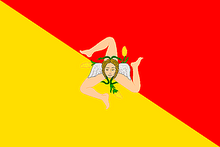Redeemer Presbyterian Church: Good Friday Meditation
The Sixth Word
Later, knowing that all was now completed, and so that the Scripture would be fulfilled, Jesus said, "I am thirsty." A jar of wine vinegar was there, so they soaked a sponge in it, put the sponge on a stalk of the hyssop plant, and lifted it to Jesus' lips. When he had received the drink, Jesus said, "It is finished." With that, he bowed his head and gave up his spirit.
If there’s one Greek word that English speakers need to understand in order to grasp the profundity of Good Friday, it’s the Greek word tetelestai, which means, “It is finished.” Because on a certain Friday afternoon, on that dark and bleak day, some 2000 years ago, one man, in the last moment of his life, would utter this one word--A word that would change the course of history; a word that word complete the task of God. And, again, that’s the word tetelestai, “It is finished.”
But when that word left the mouth of that one man, what did he mean? What, in fact, was finished?
Well, in order to understand this word, we have to put it in context. You see, like looking at a great painting from the renaissance, in order to understand the subject in the foreground, it’s important to understand the background, which gives the subject its context. So, what’s the background that will bring this word into sharp relief?
Well, the background is the opening chapters of Genesis. You see, John’s Gospel begins with the same words as does the Book of Genesis, “In the beginning.” So, with these words, John is trying to tell us something right off the bat. He’s trying to tell us that his Gospel is going to echo in some way--however slightly--the opening chapters of the Bible. And the opening chapters of the Bible tell us one thing: How God created the heavens and the earth.
You see, the opening chapters of Genesis are structured around the seven days of creation--day one: God creates light; day two: God creates the sky or the heavens; day three: He separates the water from the land; day four: He creates the sun and the moon and the stars; day five: He creates the beasts of the field, the birds of the air and the fish of the sea. And then on day six, before God rests on day seven, Genesis tells us that God created humanity in his own image and crowned them with glory and honor. Then the writer of Genesis tells us that when the creative process was completed, when God looked at his creative work, He said one thing, “It is very good.”
But notice what God didn’t say. He didn’t say, “It is finished.” And John gives us a hint as to why?
You see, not only does John open up his Gospel with the opening words of Genesis--“In the beginning”--but he structures his entire account around seven statements too: The seven “I am” statements of Jesus.
In chapter 6 of John’s Gospel Jesus says, “I am the bread;” in chapter 8 He says, “I am the light of the world;” in chapter 10 He says, “I am the door;” Also, in chapter 10 Jesus says, “I am the good shepherd;” then, in chapter 11 He says, “I am the resurrection and the life;” then, later in chapter 14 He says, “I am the way and the truth and the life;” and then finally, in chapter 15 Jesus says, “I am the true vine.”
You see, John is doing everything he can to echo the Book of Genesis with the hope that we latch onto one very important thing: Where Genesis tells the story of creation his Gospel tells the story of re-creation--it tells the story of redemption.
So, with Genesis as the backdrop, what does tetelestai mean? What does “It is finished” mean?
Well, it doesn’t mean that God…threw in the towel! It doesn’t mean that God gave up!
It doesn’t mean that God resigned!
You see, what is finished is our vain attempts of redeeming ourselves.
You see, on that certain Friday afternoon, on that dark and bleak day, one man, would utter one word, and that word would set us all free--free from the bondage of trying to redeem ourselves.
Monday, March 24, 2008
Subscribe to:
Posts (Atom)


